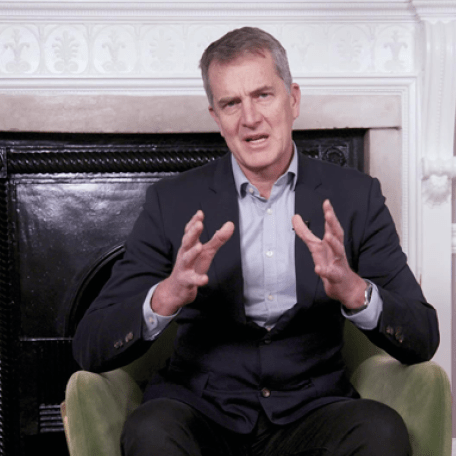The Fund returned 4.2% over the quarter, outperforming the IA Flexible Investment sector average of 1.3% (which is the comparator benchmark)*.
Equity markets grew more volatile throughout the third quarter, with the Federal Reserve discussing a start to tapering in November, supply chain blockages, spiralling raw material prices, a new standoff over the US debt ceiling and concern around contagion from the collapse of debt-plagued Chinese property giant Evergrande.
Asset allocation remained a positive contributor to performance over the quarter and we reduced our moderate overweight to equities back to neutral in September. We were last neutral back in February 2020 in advance of initial pandemic fallout but moved back overweight a couple of months later as we felt the long-term opportunity for equities was increasingly compelling post-selloff. This latest shift reflects how far we feel markets have come over the last 18 months, with cash exposure also increasing as a result.
We have never been keen to focus too much on short-term performance and Q3 highlights exactly why. Given our quality growth focus, the portfolio underperformed in the first few months of the year with expectations of imminent rate hikes to control inflation but had a stronger July and August as the US Federal Reserve indicated it would let the economy run hot without raising rates until late 2022 or 2023. This refocused markets on reliable growth companies and causing a fast rotation back into our favoured names. A more hawkish Fed in September drove another reversal and a selloff in technology, however, and all this has been without any underlying change in the business models or prospects for our selected companies. This is why, as always, we believe a well-diversified portfolio with multiple thematic drivers and high-quality companies is the best way to navigate whatever macroeconomic developments emerge.
ThermoFisher Scientific was among our top holdings over Q3 and highlighting its strong fit for our portfolios, the company’s logo, as the world leader in serving science, is healthier, cleaner and safer (a slight variation on the cleaner, healthier and safer at the heart of our Sustainable Future approach). This US company sells medical technology products across areas as diverse as mass spectronomy, allergy/auto immunity testing, food safety testing kits, cancer testing diagnostics and post-transplant tissue testing. Healthcare needs to become more efficient and a key part of that lies in early diagnosis of diseases based on genetic make-up.
The company reported strong Q2 numbers at the end of July with revenue up 34% to $9.27 billion and highlighted a range of developments showing the scope of its activities. These included launching products to advance complex small molecule research, announcing collaborations with leading academic medical centres including the Mayo Clinic to accelerate development and adoption of more precise and personalised diagnostics for blood-based cancers, and opening a new plasmid DNA facility in Carlsbad, California to meet demand for plasmid DNA-based therapies and mRNA-based vaccines.
Alphabet also remains among our top names although was among the stocks pulled down in the indiscriminate tech selloff in the latter part of September. As we have written before, we avoid crowded trades such as the mega-cap FAANG names and, of those, only Alphabet is currently investable for us. The company posted yet another set of strong results for Q2, with revenues of $61.9 billion, reflecting elevated consumer online activity and broad strength in advertiser spending. For us, Alphabet stands out because the core Google Search business makes the internet a more efficient place through its indexation and democratisation of information. This is provided free to the vast majority of users and has become an integral part of everyday life, which is why the company sits in our Providing education theme. As a sector, technology emits more than airlines, both in the US and globally, and Alphabet also stands out here, ensuring it has energy-efficient data centres and as one of the biggest buyers of renewable energy.
Palo Alto Networks also produced a strong quarter, albeit slightly dented at the end, with a share price jump when the company announced results on 23 August. For fiscal year 2022, it expects total billings in the range of $6.60 billion to $6.65 billion, representing year-on-year growth between 21% and 22%. Palo Alto provides technology to protect our digital way of life, with its firewall product consistently rated the best by Gartner and the company achieving high customer satisfaction scores. This gives us confidence it will succeed in making online information available only to those permitted to see it and impressive growth in the cloud security and next-generation firewall markets has clearly been a tailwind over recent quarters.
Another stock rallying hard on the back of strong results was TechnoPro, Japan's largest technology-focused staffing and service company, specialising in design and R&D. Core operating profit for full-year 2021, to end June, was 17.63 billion yen, up 8.4% year-on-year, while net profit was 13.24 billion yen, up 22.4%. TechnoPro serves nearly 2,000 clients in Japan and its services cover the majority of technical fields, including machinery, electrical and electronics, information systems, IT infrastructure, chemistry, biotechnology, pharmaceuticals, architecture, civil engineering, and energy. As the pace of change increases, CEO Takeshi Yagi said TechnoPro will focus on its solutions and technology consulting businesses, including consignment, subcontracting, and technology consulting, in addition to its mainstay engineer staffing.
Elsewhere, the world is in the midst of a global shortage of computer chips, with the pandemic upending supply chains and changing consumer shopping patterns, and several of our holdings in this area remain among our best. Cadence Design Systems, for example, delivered second-quarter 2021 revenue of $728 million, compared to $638 million for the same period in 2020, with eight significant new products launched so far this year. As for ASML, while also hit in the end September selloff, the company has increased its financial forecasts for the next decade amid booming demand for its lithography systems, a key component for computer chip makers. It predicts revenue growth of around 11% annually up to 2030 and estimates revenue will hit €24-30 billion in 2025, with gross margins up to 55%.
Swedish investment platform Avanza has also continued to perform well since we added the stock last year, announcing second-quarter numbers in July including a 43% rise in operating income and a 61% increase in profits. Over the quarter, the company passed milestones of 1.5 million customers and SEK 700 billion in savings capital, also ranking highest among banks and number four overall in Kantar Sifo’s reputation index 2021, meeting one of its sustainability targets for the year.
Weaker holdings in Q3, in the context of that increased volatility and tech selloff, included Illumina, PayPal and Spotify. With Illumina, a global leader in sequencing for genetic analysis held under our Enabling innovation in healthcare theme, the company produced strong Q2 results, with a 78% increase in revenue year-on-year exceeding expectations across all regions. It raised 2021 financial guidance again on the back of this but a rise in operating costs is building pressure on the bottom line and complications following its GRAIL acquisition continue to weigh on the stock in the short term.
PayPal also reported second-quarter earnings and total payment volumes that beat analyst estimates but shares fell as revenue guidance for Q3 was short of Wall Street targets. The company added 11.4 million new net active accounts in the second quarter and had 403 million active accounts worldwide at the end of the period. Looking forward, we feel the company is better positioned than ever to take advantage of the growing trend towards digital payment as part of our Increasing financial resilience theme. Our thesis is largely based around engagement and we look at the number of new customers that sign up and how frequently they use PayPal when making a purchase: simplistically, the more payment volumes it processes, the more cash is generated for the company and its shareholders.
Spotify shares also fell in July as the company reported lower-than-expected new user numbers in the second quarter, with the pandemic suppressing growth in markets such as India. Spotify added nine million monthly active users over Q2, bringing the total to 365 million, falling short of its own forecast, as well as the market’s 372.5 million average estimate. We model growth slowing to a more mature 10% to 15% over the next five to 10 years in terms of new users but remain excited to see signs of monetising the audience, including the recent news of an expansion into live events.
In terms of trading, we initiated a position in US firm PTC, a leader in technologies such as the Internet of Things, with its Thingworx offering, and Augmented Reality, with its Vuforia product. Across this broad range of software, the company’s goal is to make its manufacturing customers more efficient, bringing digitalisation to the factory floor, and it is a strong fit for our Improving the resource efficiency of industrial and agricultural processes theme. Internet of Things is an exciting advance, connecting the operational technology on a factory floor to the IT infrastructure; this connectivity produces real-time data, which helps ensure operational assets can be monitored. Augmented Reality allows on the job training through the use of technology and can lead to significant improvements in on the job efficiencies. Overall, the business delivers strong growth and trades on an undemanding multiple given its opportunities.
We also added Intertek over the quarter, a global leader in the testing and inspection space, under our Better monitoring of supply chains and quality controls theme. Through its technology, the company ensure that products are tested, checked and certified to meet regulatory standards and offers high single-digit revenue growth, double-digit EPS growth and a high return on invested capital.
In terms of sells, we exited our position in Kerry Group after many years in the portfolio. The company is exposed to our Delivering healthier foods theme, using its IP to improve the nutritional characteristics of our foods. We sold after our annual review as the share price now reflects our five-year assessment of intrinsic value. We also sold Banca Generali based purely on strong competition for capital within the portfolio. Banca Generali is a C rated business in our Sustainability Matrix and we are finding opportunities in new ideas that are a better fit for the process and we expect to deliver more growth.
Discrete years' performance* (%), to previous quarter-end:
|
|
Sep-21 |
Sep-20 |
Sep-19 |
Sep-18 |
Sep-17 |
|
Liontrust Sustainable Future Managed Growth |
22.7 |
27.0 |
9.5 |
16.3 |
17.1 |
|
IA Flexible Investment |
18.3 |
0.9 |
3.2 |
5.4 |
10.5 |
|
Quartile |
2 |
1 |
1 |
1 |
1 |
*Source: Financial Express, as at 30.09.21, primary share class, total return, sterling, net of fees and income reinvested.
Key Risks








